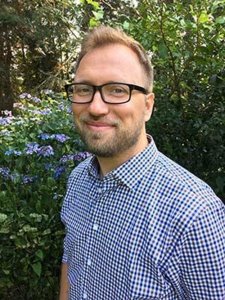Presented By: Center for Southeast Asian Studies
CSEAS Lecture Series. Ruptured Ecologies: How Thai Settler Colonialism is Reshaping the Northern Uplands & Indigenous Futures
Daniel B. Ahlquist, Michigan State University

Free and open to the public. Please register at http://bit.ly/3q8h5sf
The literature on colonialism in mainland Southeast Asia tends to focus on the European colonial project, in part because of unease among scholars around applying the concept of indigeneity in the region. However, an increasingly robust scholarly and activist conversation around indigeneity in Southeast Asia (see: Morton et al. 2016; Baird 2018) invites a parallel examination of the states and politics against which indigeneity is articulated. In this paper, I examine the Thai state’s upward expansion into the northern uplands over roughly the past half-century through the lens of settler colonial theory (Wolfe 2006; Veracini 2011; Whyte 2017, 2018). Focusing primarily on state conservation and development interventions, I argue that this upward expansion has been – and continues to be – a settler colonial project. I draw on extended ethnographic fieldwork in and beyond two Akha communities in Chiang Rai Province to show how state interventions rupture and replace Indigenous ecologies with settler ecologies; facilitate (ethnic) Thai settlement while continuing to deny Uplanders’ land claims; disadvantageously integrate Uplanders into the market economy; and create generational rifts between elderly Uplanders and the youth on whom they depend to both care for them and carry on their cultural traditions. Together, these interventions reshape upland landscapes and social relations in ways that reinforce state claims to upland spaces and threaten both the place-based livelihoods and “collective continuance” (Whyte 2017, 2018) of Upland Indigenous communities – a hallmark of settler colonialism. In closing, I briefly discuss emergent forms of adaptation and resistance in Upland communities.
Daniel B. Ahlquist is an Assistant Professor in Michigan State University’s James Madison College of Public Affairs. As a teacher and a scholar, he is motivated by an interest in human-environment relationships and the ways political and economic inequalities between social groups play out through uneven relationships to the environment. His current research projects explore the cross-cutting themes of state conservation and development agendas, agrarian change, displacement, and changing forms of inequality in Southeast Asia. He holds a Ph.D. in Development Sociology from Cornell University.
If there is anything we can do to make this event accessible to you, please contact us. Please be aware that advance notice is necessary as some accommodations may require more time for the university to arrange. Contact jessmhil@umich.edu.
The literature on colonialism in mainland Southeast Asia tends to focus on the European colonial project, in part because of unease among scholars around applying the concept of indigeneity in the region. However, an increasingly robust scholarly and activist conversation around indigeneity in Southeast Asia (see: Morton et al. 2016; Baird 2018) invites a parallel examination of the states and politics against which indigeneity is articulated. In this paper, I examine the Thai state’s upward expansion into the northern uplands over roughly the past half-century through the lens of settler colonial theory (Wolfe 2006; Veracini 2011; Whyte 2017, 2018). Focusing primarily on state conservation and development interventions, I argue that this upward expansion has been – and continues to be – a settler colonial project. I draw on extended ethnographic fieldwork in and beyond two Akha communities in Chiang Rai Province to show how state interventions rupture and replace Indigenous ecologies with settler ecologies; facilitate (ethnic) Thai settlement while continuing to deny Uplanders’ land claims; disadvantageously integrate Uplanders into the market economy; and create generational rifts between elderly Uplanders and the youth on whom they depend to both care for them and carry on their cultural traditions. Together, these interventions reshape upland landscapes and social relations in ways that reinforce state claims to upland spaces and threaten both the place-based livelihoods and “collective continuance” (Whyte 2017, 2018) of Upland Indigenous communities – a hallmark of settler colonialism. In closing, I briefly discuss emergent forms of adaptation and resistance in Upland communities.
Daniel B. Ahlquist is an Assistant Professor in Michigan State University’s James Madison College of Public Affairs. As a teacher and a scholar, he is motivated by an interest in human-environment relationships and the ways political and economic inequalities between social groups play out through uneven relationships to the environment. His current research projects explore the cross-cutting themes of state conservation and development agendas, agrarian change, displacement, and changing forms of inequality in Southeast Asia. He holds a Ph.D. in Development Sociology from Cornell University.
If there is anything we can do to make this event accessible to you, please contact us. Please be aware that advance notice is necessary as some accommodations may require more time for the university to arrange. Contact jessmhil@umich.edu.